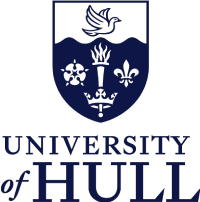About the Project
Summary of Cluster
The University of Hull has strong research ties to the marine environment. To strengthen these ties, the “Molecular Stress in Changing Aquatic Environments” research cluster is seeking applications to begin fully funded 3-year PhD studies in Fall 2018. Our research cluster aims to deconstruct the cause-and effect network between aquatic environmental change (climate change, human-induced pollution) and organismal stress response at the molecular level, and to utilize this information to generate tools and strategies for mitigating the ecosystem effects of global change. We take a systems approach, collaboratively bridging a variety of disciplines (ecology & evolution, toxicology, genomics, proteomics, analytical and computational chemistry, and computational biology) to achieve these goals. Some of our research at Hull has been prominently featured in a recent research outlook in the Oct. 2017 issue of Nature (https://www.nature.com/nature/journal/v550/n7675_supp/full/550S54a.html). We are seeking three PhD students to work in a combination of field, research institute / industrial (aquaculture), and lab settings, and across a range of aquatic vertebrate and invertebrate species. They will develop expertise through in-house access to biotechnology infrastructure (Genome sequencing, HPLC Mass Spec), and the largest supercomputer in the North of England (VIPER). Students will be advised by a team of academics with vibrant research programs, and work closely with collaboration partners at CCmar in Faro, Portugal; Cromarty Mussel farms, in Cromarty Firth, Scotland; the East China Fisheries Research Institute, Shanghai, China; and the British Antarctic Survey. Our strong links with industry partners will ensure that the work will have immediately applicable outcomes and students gain industry-relevant skills and contacts. Students will also be provided with the skills and expertise necessary to succeed in policy making and academia.
Prospective students are expected to be good team players, as their independent projects will jointly contribute to cluster research goals. Ability to pursue independent research, excellent writing, and fluency in English is expected. We encourage applications from students whose backgrounds are traditionally underrepresented in STEM fields. To apply, see information below.
Summary of PhD Project 2
Universal biotic stress compounds and their function under ocean acidification.
“Environmental change” describes a combination of a variety of stressors (changed temperatures, ocean acidification, human pollutants) affecting aquatic species. Recently, it has become evident that such environmental changes negatively affect chemical communication. This project will expose aquatic invertebrates inhabiting cold waters to combined environmental and biotic stressors, including laboratory experiments with polychaete marine ragworm and shore crab, as well as studies on blue mussel in field aquaculture at Cromarty Mussel farms (located within European Marine Science Park, http://www.europeanmarinesciencepark.co.uk/). Additional collaboration is established with the British Antarctic Survey and East China Fisheries Research Institute. Stress compounds obtained from these experiments, will be identified using HPLC and Mass spectrometry at UoH. In order to gain molecular-level insights on the change in function of biotic stress compounds under ocean acidification scenarios, we will use VIPER to compute conformational changes in signalling components, their analytical signatures, and biological consequences.
The position is supervised by Dr. Joerg Hardege and co-supervised by Dr. David Benoit. Further project advisors are Dr. Kevin Welham, Dr. Catherine L. Waller and Dr. Lesley Morrell. Applicants should have at least a 2.1 undergraduate degree in Chemistry, Computational Chemistry, Biochemistry, Molecular Biology or related discipline, together with relevant research experience. It is anticipated that the successful applicant will have a 1st class undergraduate degree or Masters level qualification. As this is an interdisciplinary project, ideal candidates will have a background or demonstrated interest in at least one of the main subject areas and be willing to develop skills in the other areas.
PhD students at the University of Hull follow modules for research and transferable skills development and gain a Masters level Certificate, or Diploma, in Research Training, in addition to their research degree.
Successful applicants will be informed of the award as soon as possible and by 2nd April 2018 at the latest.
Funding Notes
Studentships will start on 17th September 2018.
Full-time UK/EU PhD Scholarships will include fees at the ‘home/EU' student rate and maintenance (£14,553 in 2017/18) for three years, depending on satisfactory progress.
Full-time International Fee PhD Studentships will include full fees at the International student rate for three years, dependent on satisfactory progress.

 Continue with Facebook
Continue with Facebook

